In Italy, it’s quite common to walk through the streets and listen to people who use local dialects and peculiar expressions. If you have Italian roots, specifically from our region, you might remember your grandparents speaking abruzzese, which of course is a variation of the official national language but not always so easy to understand unless you are used to it.
We would like to take you on a linguistic tour to discover some common sayings and proverbs without claiming to be a guide or write a thorough list, but with the aim of making a genuine picture of Abruzzo and most of all…managing to get a smile!
Imagine you are in the middle of a local food festival or walking through the main square of a town you are visiting. Our region is well known for its hospitality: you could easily get to know and talk to people, who would be more than happy to introduce you to some funny expressions.
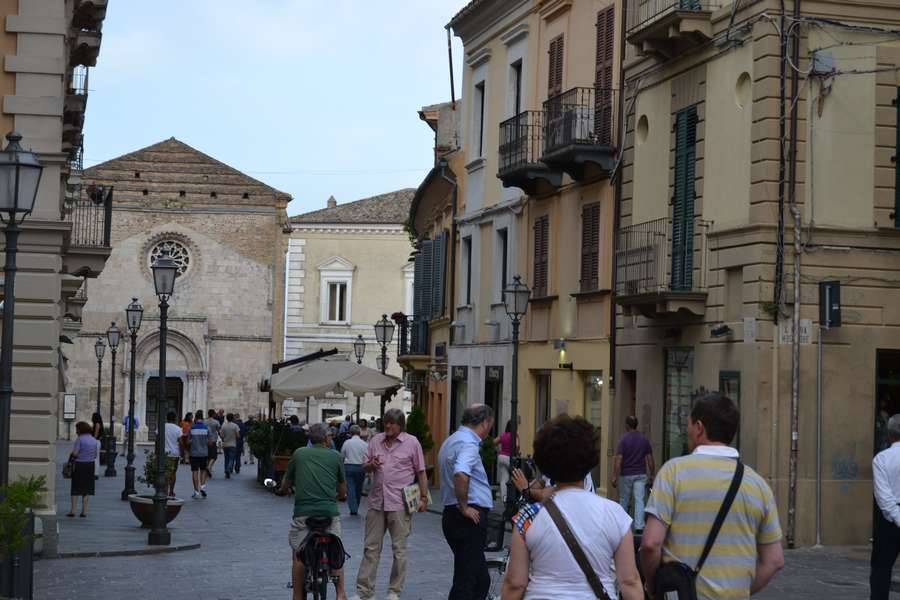
If you hear Chi sci lu fije? (pron. Kee see loo feeje?), they are basically asking you Who are your parents? This could be the perfect occasion to tell them if you have any relatives in Abruzzo and where they live or used to live.
If you try to repeat what they say, we are pretty sure you would start laughing, and they could say Rid, rid ca mamm ha fatt li gniucc! (pron. Reed, reed ka mumm ha phatt lee nyuhk), literally Laugh, laugh, mum prepared gnocchi! This sentence has different meanings, sometimes it’s used to say that there’s actually nothing to laugh about, in other cases to make fun of they way a simple thing has generated a lot of unpredictable enthusiasm.
You are now part of the community, so sit down and take notes! Everyone would like to teach you an Abruzzese expression.
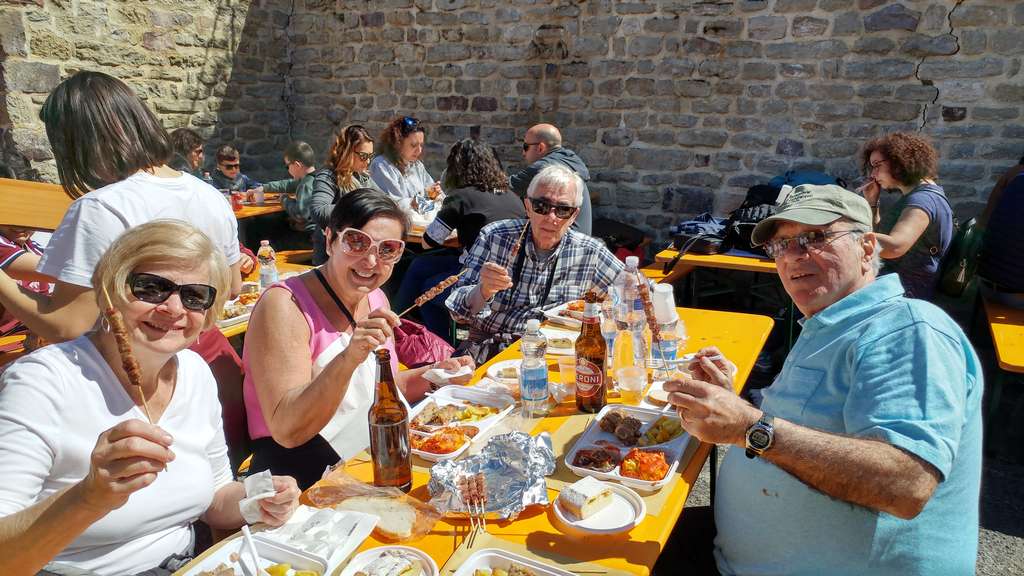
Scin ca scin, ma ca scin ‘n tutt no. (pron. Sheen ka sheen, ma ka sheen ‘n toot no.)
Ok, but don’t go too far. When you are having a discussion and you finally agree on something, this sentence means that the deal is made, but with some limitations, so you cannot do whatever you want.
Sci’ccisa la zappa e chi te l’ha messa n’mano. (pron. Shee’ceesa la tsappa ɛ kee te l’ha messa n’mano.)
Darn the hoe and whoever gave it to you! It means you are considered inadequate to do something…(but in this case, don’t take it too personal!).
Sta ‘bbone Rocche, sta ‘bbone tutta la rocche. (pron. Sta ‘bbonɛ, Rokkɛ, sta ‘bbone tootta la rokkɛ.)
If Rocco is ok, then everybody is ok. Do you see the guy who is seating in front of you? The one who occupies an entire bench? He looks really fine, and to make fun of the fact that he doesn’t leave any room for his friends, they say that as long as he’s ok, everyone is ok.
A lavà la cocce all’asin ‘c sà ‘rmette tempe e sapone. (pron. A lavaa la coce all’aseen ‘ch sà ‘rmette tempe ɛ sapone.)
If you wash the donkey’s head, you lose time and soap.
Ever tried to explain something to someone who doesn’t pay attention or doesn’t care about what you’re saying? It’s better to save your time and energies!
Addezz’ mezza bellezz’. (pron. Addetz’ metza belletz’.)
Literally, height is “half of beauty” or better said…Tall is beautiful.
Attacche l’asene dova vò lu patrêne. (pron. Attakke l’asene dova vò loo patrene.)
Tie the donkey wherever the boss tells you to do it.
It’s often better to listen to your boss and don’t go against his/her beliefs, even if you feel it doesn’t make sense.
Chije te bbattêzze te è cumbare. (pron. Keeje te bbattetze te eh coombare.)
The godfather is a good partner.
Everywhere in the world, the person who sponsors a child’s baptism is someone who is supposed to take a good care of him in life. This expression can also have a broader meaning: those who show an interest in you are the ones who look after you.

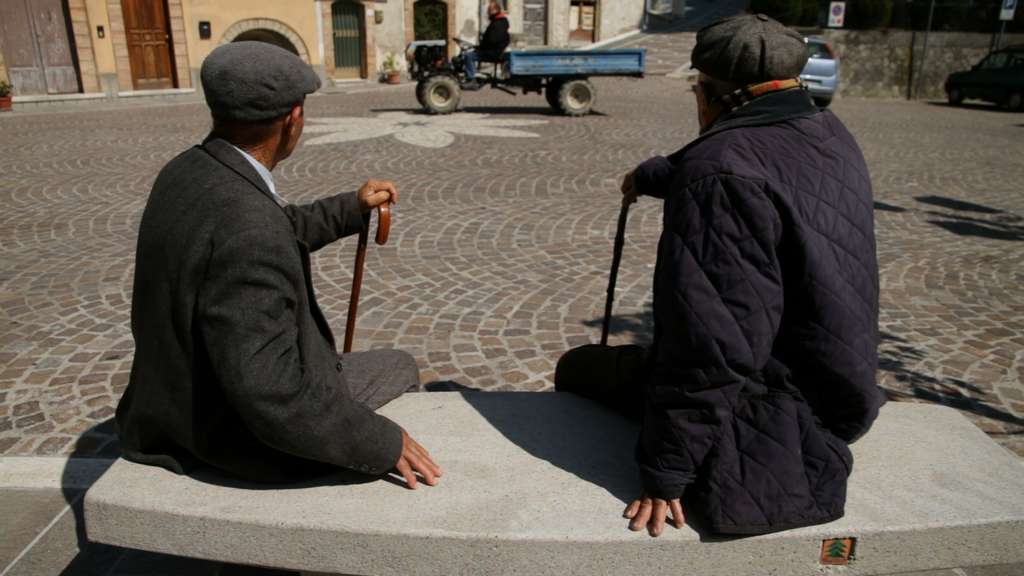
È ‘cchiù la spêse che la ‘mbrêse. (pron. Eh ‘kkioo la spese ke la ‘mbrese.)
The money spent is greater than the one generated.
It often happens that you spend a lot of resources to achieve something and at the end you are left with nothing. Always make sure your efforts are worth it!
La ijérva cattève nen more maije. (pron. La eejerva catteve nen moree maije.)
The bad grass never dies.
We will always be surrounded by bad people, no matter what.
Li guaije de la pignate le sà la cucchiare. (pron. Lee guaeeje de la peegnate le sà la kukkiare.)
The ladle knows the pot’s troubles.
What happens in the house, stays in the house! Every family tends to keep personal problems between themselves and the four walls.
Lu cotte sopra lu vullète. (pron. Loo cotte sopra loo voolete.)
Cooked over boiled.
You know when you have the feeling that you are trapped in the middle of a negative vortex? This common saying is used when you are hit by a series of negative events.
Lu vove desse curnéte all’asene. (pron. Loo vove desse coornete all’asene.)
The ox offends the donkey (saying that he is horned).
Everyone has some defects, but we often don’t recognize them. So what happens is that sometimes we attribute to other people what in fact is our own weakness.
Nze pò tenê lavotta piene e la mêije ‘mbrijìche. (pron. Ntse po’ tene la votta piene ɛ la meije ‘mbreeche.)
You can’t have, at the same time, a full barrel and a drunk wife. If we use food as an example, you cannot eat your cake and keep it. It means you can’t have something both ways.
So now you might be staring at your new friends and thinking you will never learn how to pronounce these sentences but also that you will never get to use them in your entire life…it might be true, and if this is the case, the guys have a last saying to teach you.
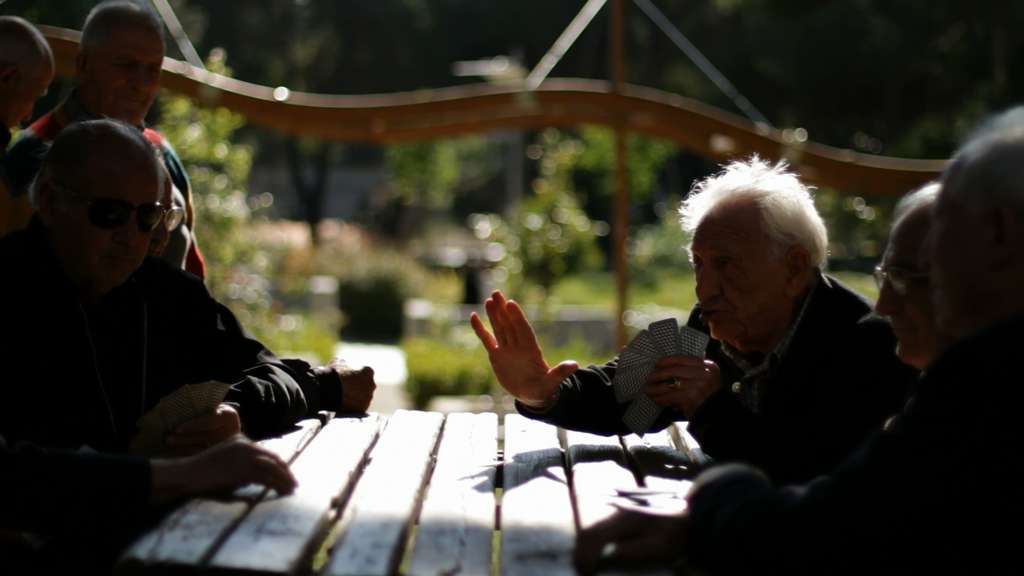
Mbare l’arte e mèttele da parte. (pron. Mbare l’arte e mettele da parte.)
Learn an art and put it aside.
You never know what life will bring you, so if you get a chance to learn something new, just do it even if it feels pointless at the time. You could find it useful one day.
Watch this short video with many common sayings and proverbs that may let you remind your grandparents. We filmed it in different locations (especially in #Vasto): retired people club, Bocciodromo, fruit, salami, cheeses and fish market, piazzas and so on.

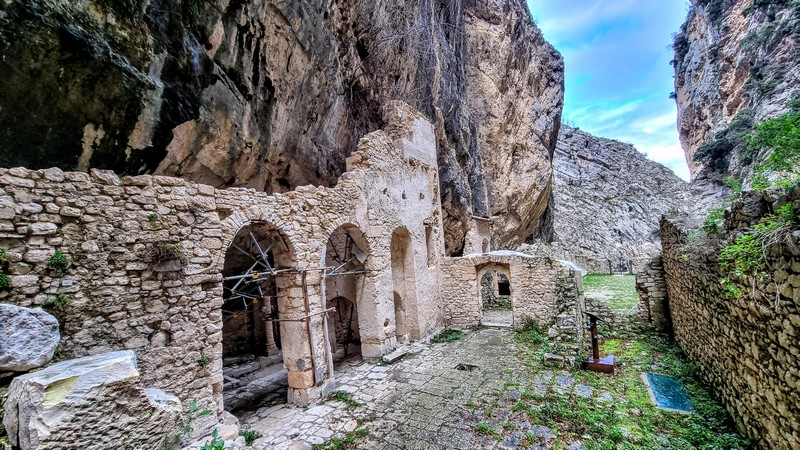
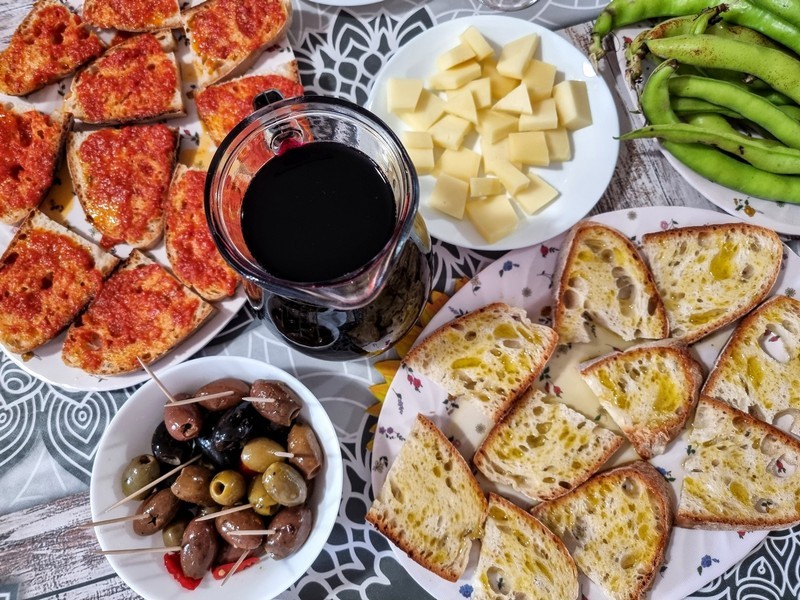
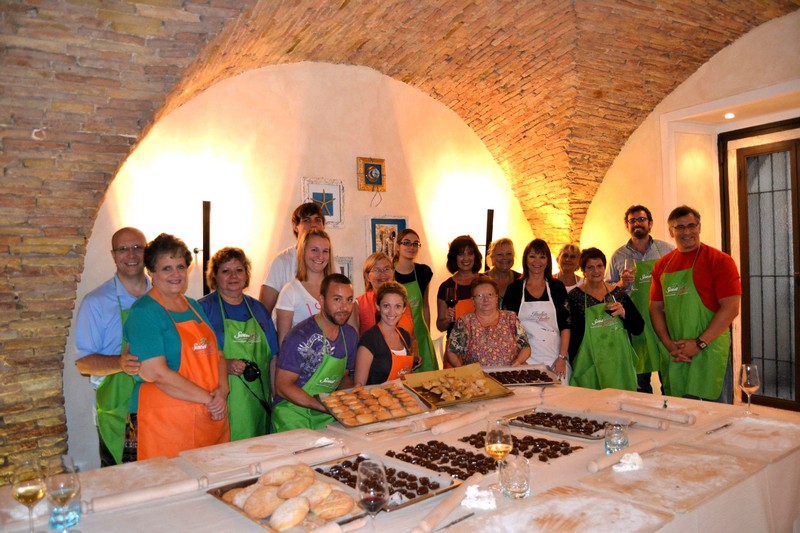


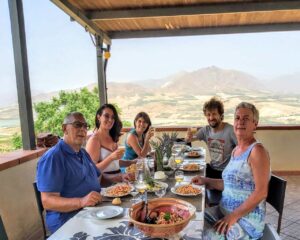

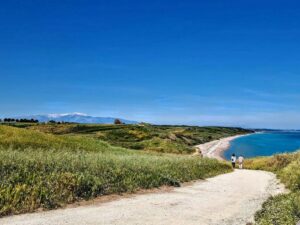

10 thoughts on “Do you speak abruzzese?”
If I may, “Sci” is pronounced “shee”, not “see”.
LA vott and not LU vott. Even though this is dialect, attention is still paid to feminine/masculine.
Grazie mille Bea, you’re right. We corrected these words. Keep following us, Fabrizio
My Family is from Ville Valle Longa…I wish I knew more about the towns ion Abruzzi
Grazie mille to share your information Richard. I was in Villavallelonga 3 years ago to help a couple from USA to discover their origins and hometown as you can see here: https://www.flickr.com/…/itali…/albums/72157662001840829. It was a lovely experience and it is a beautiful village. Good luck and ciao for now, Fabrizio. p.s.: if you need any help, contact us through this page: http://www.italiasweetitalia.com/…/ancestry-a-holiday…/
Hi Fabrizio, my Grandfather Domenico is from Notaresco, on my mother’s side and my Grandfather Bernardo is from Castelalto, on my Father’s side. I appreciate the dialect of Abruzzo, I spent many days speaking and learning about Abruzzo, my Grandfather Domenico is no longer here but I can still hear him speaking. Grandfather Bernardo passed before I was born. Thank You!
Grazie mille to share your information and family story Tony.
Ciao for now, Fabrizio.
p.s.: if you need any help to trace your roots, contact us through this page: https://italiasweetitalia.com/ancestry-a-holiday-to-trace-your-abruzzo-roots/
I correspond with friends in Cermignano, Abruzzo and they often switch from Italian to Abruzzese. I can only speak “standard” Italiano.
Can anyone suggest an italian/abruzzese translator or dictionary; either on line or in print?
Tanta Grazie in anticipo!
Buongiorno Rick,
it is nice to know that you have Abruzzo roots. Many thanks for sharing your story.
I’m sorry but I but I am not aware of any italian/abruzzese translator or dictionary.
Good luck for this reserach!
Fabrizio
Hello!
My mother was born in Pacentro! My grandmother is still alive (93) as are her sister, a brother in law and a sister in law. The abruzzese dialect is sainting for us bc the older generation is dying. My mother and her siblings speak it but no one – even the older generation knows how to spell or wrote it. Is there a book or dictionary I could buy with words/phrases/pronunciations? It’s incredibly difficult to think of a soon time when I won’t hear this delightful language.
There is a rhyme that my grandfather (Tonino Carrabbia) taught me that he was very proud of – he often lamented about pacentro’s rivalry with Sulmona, which is where this came from:
Pacentro di pace
Chi ruba, chi dacce (da-che)
Chi dentro, chi fuori
Y vieto latri stanno Sulmona
Roughly I understand it as – Pacentro a place of peace, and if there are thieves they’re from Sulmona. Any chance you can help with a more direct translation?
Love this site so much – thank you for making me smile.
Best,
Shannon Penney
Ciao Shannon,
many thanks for contacting me.
I’m happy that you still remember the ancient sayings of your family and that you try to carry them forward, but our base is Vasto, a city in Abruzzo but a little far from Sulmona so we don’t know this saying and at the same time we have no knowledge of books in dialect with the right translation into Italian.
Some dialect phrases are also present in our video: https://youtu.be/lyxGuedRolo?feature=shared
if you like to know and learn them.
Or you can read this article of ours: https://italiasweetitalia.com/do-you-speak-abruzzese/
Ciao for now
Fabrizio